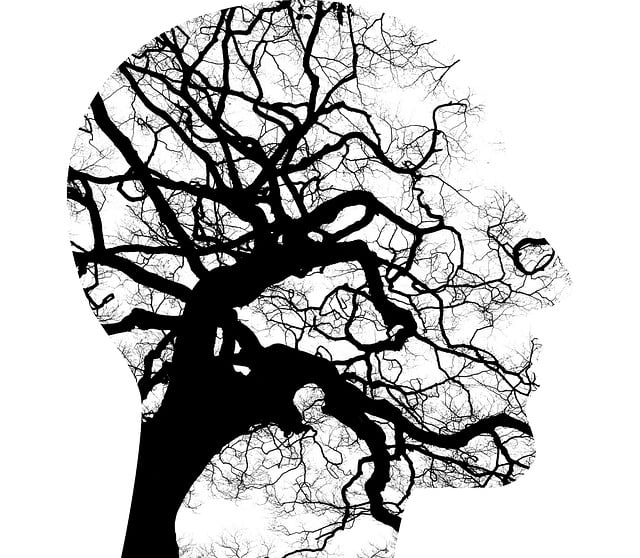Parker First Responders Therapy (PFR) is a specialized approach for first responders and military veterans dealing with trauma or mental health challenges, offering tailored strategies including mood management, coping mechanisms, and PTSD treatment. In group settings, PFR emphasizes creating safe, supportive environments through open communication, active listening, empathy, and cultural sensitivity. Techniques like icebreakers, round-robin sharing, mindfulness meditation, and self-care routines promote camaraderie, trust, and mental wellness. Facilitators guide members through interactive exercises and discussions based on individual experiences, fostering a cohesive atmosphere where participants feel comfortable expressing their thoughts and feelings, ultimately enhancing the effectiveness of mental wellness support.
Mental wellness group facilitation plays a pivotal role in enhancing individuals’ well-being. This article explores powerful techniques, particularly focusing on Parker First Responders Therapy (PFRT), a unique approach that empowers facilitators to support vulnerable participants. We delve into understanding PFRT’s core principles and its impact on group dynamics. Additionally, we uncover strategic facilitation methods, engagement techniques for open communication, and the creation of safe spaces, providing valuable insights for professionals navigating mental wellness group settings.
- Understanding Parker First Responders Therapy: An Overview
- Group Dynamics and Facilitation Strategies
- Engagement Techniques to Foster Open Communication
- Creating a Safe and Supportive Environment for Mental Wellness Groups
Understanding Parker First Responders Therapy: An Overview

Parker First Responders Therapy (PFR) is a specialized approach designed to support individuals who have experienced traumatic events or face severe mental health challenges. This therapy recognizes that first responders, such as emergency personnel and military veterans, often bear unique psychological burdens. PFR focuses on providing immediate and effective interventions to mitigate the risk of mental illness stigma and promote positive outcomes for these high-risk populations.
The core principle of Parker First Responders Therapy involves a comprehensive risk assessment for mental health professionals. By thoroughly evaluating an individual’s emotional state, trauma history, and potential triggers, therapists can tailor their approach to address specific needs. This includes strategies for mood management, coping mechanisms, and post-traumatic stress disorder (PTSD) treatment. PFR aims to empower participants with the tools needed to navigate life’s challenges, ensuring better mental wellness in both personal and professional settings.
Group Dynamics and Facilitation Strategies

In a mental wellness group setting, understanding group dynamics is key to effective facilitation. The interactions and relationships among group members can significantly influence their therapeutic journey. As a facilitator, creating a safe and supportive environment is paramount. Encouraging open communication, active listening, and empathy fosters trust and encourages participants to share their experiences. Techniques such as icebreakers, round-robin sharing, and structured discussions help build camaraderie and promote active engagement.
The role of the facilitator is crucial, acting as a guide and support system. Utilizing methods like Parker First Responders Therapy can be transformative, offering immediate feedback and techniques for emotional regulation. Moreover, integrating mindfulness meditation practices and promoting self-care routine development enhances group members’ overall mental health. Cultural sensitivity in mental healthcare practice is also essential, ensuring that the group’s dynamics are inclusive and respectful of diverse backgrounds and experiences.
Engagement Techniques to Foster Open Communication

In facilitating mental wellness groups, fostering open communication is paramount, and various engagement techniques can significantly enhance this process. One effective approach inspired by Parker First Responders Therapy encourages active participation through interactive exercises and discussions tailored to individual experiences. By creating a safe and supportive environment, facilitators can help members share their stories, offering unique perspectives that enrich group dynamics. This technique not only promotes self-care practices but also empowers individuals to navigate their mental health journeys with newfound resilience.
Furthermore, incorporating structured activities from Stress Management Workshops Organization can normalize conversations about stress and anxiety. Social Skills Training exercises facilitate meaningful connections among group members, encouraging empathy and understanding. These inclusive strategies collectively contribute to a cohesive group atmosphere where participants feel comfortable expressing their thoughts and feelings, ultimately enhancing the overall effectiveness of mental wellness support.
Creating a Safe and Supportive Environment for Mental Wellness Groups

Creating a safe and supportive environment is paramount for effective mental wellness group facilitation. It’s the foundation upon which members feel comfortable opening up about their experiences, fostering a sense of belonging and trust. Group facilitators, like those at Parker First Responders Therapy, play a crucial role in cultivating this space by establishing clear boundaries, ensuring confidentiality, and promoting active listening. These practices encourage participants to develop self-awareness exercises that help them understand their emotions and thoughts better.
Through empathy building strategies, facilitators create an atmosphere where members feel validated and understood. This not only strengthens the support system within the group but also enhances the overall mental wellness of its participants. Moreover, incorporating interactive activities and open discussions encourages active engagement, making sessions dynamic and impactful. These techniques are integral to the success of mental wellness groups, much like a well-produced Mental Wellness Podcast Series that provides valuable insights and stories, aiming to inspire and educate listeners on their journey towards better mental health.
Parker First Responders Therapy offers a unique and effective approach to mental wellness group facilitation. By understanding group dynamics, employing engaging communication strategies, and creating safe spaces, facilitators can harness the power of shared experiences to foster healing and support. These techniques not only enhance participation but also ensure that each member feels valued and empowered in their journey towards improved mental health. Incorporating elements of Parker First Responders Therapy allows for more meaningful interactions, making group therapy sessions a game-changer in holistic wellness care.














